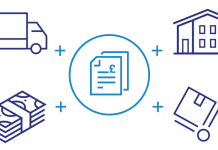Residential proxies are a valuable tool for various online activities, but their use must be guided by legal and ethical principles. Understanding the implications and responsibilities associated with using residential proxies is essential to ensure that you stay within the bounds of the law and maintain ethical standards. In this guide, we’ll explore the legal and ethical considerations of using residential proxies.
Legal Considerations
1. Compliance with Terms of Service
Residential proxy users must comply with the terms of service (TOS) of websites and online platforms they access. Violating a website’s TOS by using proxies for unauthorized activities, aggressive scraping, or any form of cyber misconduct can lead to legal consequences.
2. Privacy Regulations
Residential proxies involve the use of IP addresses assigned to real individuals. This means that the privacy rights of these individuals must be respected. Ensure that you do not engage in any activities that infringe upon the privacy of these users, such as collecting their personal information without consent.
3. Data Protection Laws
If you are collecting data using residential proxies, be aware of data protection laws like the General Data Protection Regulation (GDPR) in Europe. Ensure that you handle any personal data you collect in compliance with these laws, which may require obtaining user consent and ensuring the security of data storage.
4. Copyright and Intellectual Property
Residential proxies should not be used to infringe upon copyright or intellectual property rights. Avoid scraping or accessing copyrighted content without proper authorization, as this can lead to legal action.
Ethical Considerations
1. Responsible Scraping
Residential proxies should be used responsibly for web scraping activities. Avoid overloading websites with requests, which can cause server strain or disruptions. Implement rate limiting and follow the rules set out by websites to ensure fair and responsible scraping.
2. Transparency and Honesty
Transparency is crucial when using residential proxies. If you are collecting data or accessing websites for research purposes, be upfront about your intentions. Deceptive or misleading practices can damage your reputation and lead to ethical concerns.
3. Respect for Website Owners
Residential proxies should be used to access websites for legitimate purposes, such as data collection, research, or competitive analysis. Respect the rights of website owners and do not engage in activities that harm their interests or disrupt their services.
4. Minimize Impact on Residential Users
Residential proxy providers rely on the cooperation of residential users to operate their networks. Minimize any negative impact on these users by avoiding excessive traffic, aggressive scraping, or activities that might result in IP bans.
Choosing a Reputable Proxy Provider
Selecting a reputable residential proxy provider is essential for ensuring that you receive high-quality, ethical proxy services. Choose providers that adhere to legal regulations and ethical standards and have policies in place to prevent abusive use of their proxies.
In conclusion, while residential proxies offer significant benefits for various online activities, they come with legal and ethical responsibilities. It is crucial to use them in compliance with the law, respecting the privacy and rights of individuals and website owners. By practicing responsible and ethical use of residential proxies, you can harness their power while maintaining your integrity and avoiding potential legal issues.







